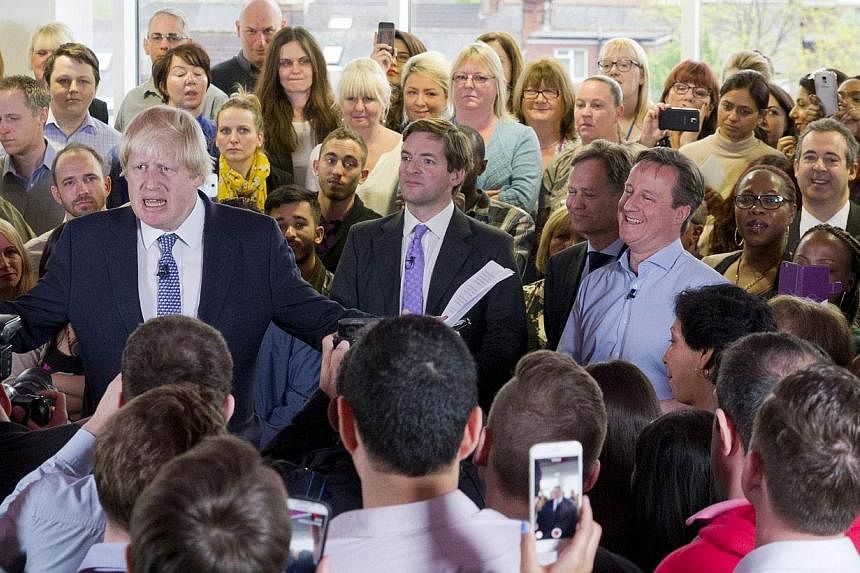LONDON - Britain's political leaders launched a frenetic final countdown to Britain's knife-edge general election tomorrow.
Conservative leader David Cameron has planned 36 hours of non-stop campaigning around Britain in a repeat of his day-and-night effort in the last two days of the 2010 election.
Liberal Democrat leader Nick Clegg has taken on a marathon form of campaigning as well, with a "two-day dash" by bus from one end of the country to the other - Land's End on England's southern tip to John O'Groats at the top of Scotland. The two main parties are neck-and-neck, with neither likely to win a majority. Power will likely hinge on the performance of smaller parties such as the Scottish National Party (SNP) and the Liberal Democrats.
Mr Cameron planned to use the penultimate day of the campaign to warn voters about the dangers of a Labour government reliant on SNP support. SNP leader Nicola Sturgeon would hold the Labour party "to ransom every time there's a vote in the House of Commons", Mr Cameron said, according to advance excerpts of a speech provided to reporters.
"She wants to load the rest of the UK with higher taxes to pay for more welfare," he added.

Mr Cameron urged voters to avoid the "instability" that he said would result if a single party did not win a strong mandate.
"Backroom deals. Bribes. Ransom notes. Chaos. Not just for the week after the election. But for five long years," he said in the advance speech.
A hint of Mr Cameron's fate if he does not win came as London Mayor Boris Johnson campaigned for election as a Conservative MP and was constantly asked if he would be the next prime minister.
Meanwhile, Mr Miliband said the election was a "clash of two visions", and tried to hang the remaining election battle on contrasting plans each party had for the state-funded National Health Service (NHS). "In the final few days of this general election, the future of the NHS is at risk in the way it hasn't been for a generation," Mr Miliband said on Monday.
In a Populus opinion poll published yesterday, both the Tories and Labour were up one point on 34 per cent each compared to a previous survey by the same pollster released on May 1. According to the survey, support for the anti-EU Ukip party fell 2 points to 13 per cent with the Lib Dems up 1 point to 10 per cent.
The unpredictability of the election was underlined when a row broke out after Liberal Democrat campaign spokesman Paul Scriven said Mr Cameron had privately admitted his party would not win a majority.
"If David Cameron is going to lie when he knows in his heart of hearts his private polls are showing that the British people are likely to give no party an overall majority, then so be it," Mr Scriven told the BBC. The Conservative party denied the claimed comment by Mr Cameron.
The BBC later reported that senior figures in the Labour party are considering the possibility of forming a minority coalition with the Liberal Democrats.
The Liberal Democrat party, whose leader Nick Clegg has been deputy prime minister under Mr Cameron, has repeatedly said it will first speak to the bloc that wins the most seats in any post-election negotiations.
Though Ms Sturgeon, the Scottish First Minister, has offered to help Mr Miliband become prime minister, he has ruled out a deal with the secessionist party. The SNP is predicted to win most of Scotland's seats and overtake the Lib Dems as the third-largest bloc in Parliament.
AGENCE FRANCE-PRESSE, REUTERS

